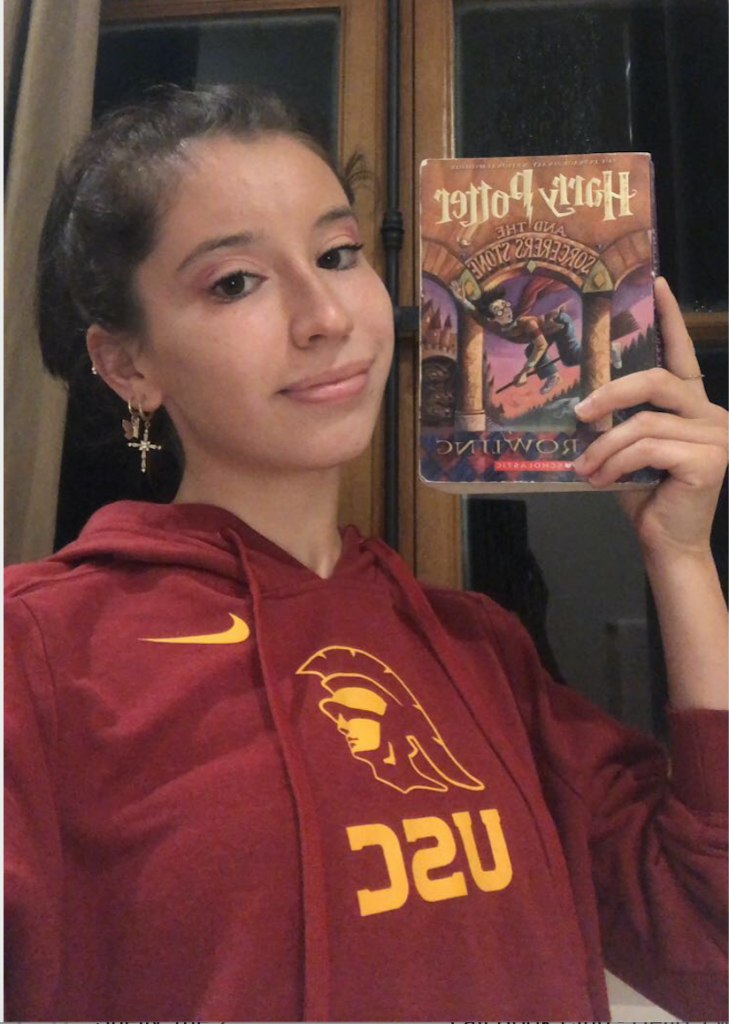Editor’s Note:
Where do you live? Where are you from? Where do you call home? For some people, the answers to all three of those questions will be the same. For many, they will be different. USC students come from different places across the country and around the globe. As young people trying to establish our place in the world, we are constantly searching for a place to call home. Everyone has a unique view of what home means to them, and below four different USC students come together to provide their own interpretation of home. You will hear from Grace (Yuan) Gao, an international student encountering the trials and tribulations of moving during a pandemic, Nathan Smith, a Masters student reflecting on his undergraduate abroad experience in Glasgow, Samhitha Saiba, coming to terms with her surprising homesickness after coming to L.A., and Leona Tafaghodi, a student in the World Bachelor in Business program learning to adjust to a new city every year. All of these students have come to USC under different circumstances, and all are still discovering what it means to feel at home somewhere. Perhaps you will find some similarities between your experiences and theirs, or perhaps simply a friendly reminder that you have had many homes and have many more to come.
-Natalie Grace Sipula, Editor
Moving During a Pandemic: How I Moved Into My New Apartment
By Grace Yuan Gao
[4 minute read]
This summer, I moved by myself to a new apartment for the very first time. Before moving, I had no idea how tiring but also eye-opening this experience would be. As an international student, I had never moved anywhere alone until coming to the United States. I grew up in a small city in the middle of China (Shanxi province, famous for its coal production), and when I first came to California I moved with the help of my parents. They assisted me in making lists of what I would need to bring to the United States and helped to package my belongings. The first time I moved to L.A., I felt fearful of the unknown, but at the same time, thrilled to come to a new and exotic place; I was able to plan and prepare for my move. However, I did not anticipate moving again in 2020 at the beginning of the summer. Moving to a new apartment during a pandemic was an utterly unforeseen experience for me, even though it was not a long distance from the place I had lived before.
Moving by myself came with a whole new set of challenges.
The most challenging part of this process for me was transportation. After being in a pandemic for nearly half a year, California has become the leading state of COVID-19 cases in the US. I had to move during the summer when the COVID-19 cases were still high since my current lease was about to expire and I did not renew it in order to save money. Neither I nor my friends (most of whom had already gone back home to their native countries) have a car, and hiring someone to help us move during this unprecedented time seemed to be an unnecessary risk. Thus, the new apartments and houses that I and my other international friends chose were really close to our original ones, so that we could move our belongings more easily. Some of my friends even moved all of their belongings by foot over multiple trips. They rented some small carts and walked to their new houses several times a day over the span of a week. It was pretty exhausting, but ultimately safe for all involved.
At first I thought it would be a huge project, and had no idea where to start.
But I was lucky enough to have a friend who gave me a hand with his new car. He carried all my stuff (about ten big boxes) downstairs and moved them to his car over several trips and greatly helped me. However, life is always full of unexpected experiences. The first day of moving, my friend was driving my things to my new apartment and a bike hit his car, which ended up shocking everyone involved. Moving is a journey full of new experiences and uncertain events, even occurrences such as a car accident, which you do not anticipate but will likely experience sooner or later.
I did not realize that I would miss my original apartment until the day before I left.
Since I just came to the United States a year ago, I usually feel like a rootless plant which prepares to be moved anywhere at any time. It was surprising for me to find that I felt an attachment to the first place I lived in when I came here and I was pretty sad to say goodbye to that place, which was tiny and messy but full of memories. As I prepared to move, I noticed that every corner of that house seemed to be filled with personal stories all of a sudden and everywhere I looked seemed both familiar and strange. Neighbors used to gather together and cook for each other in the tiny kitchen. Outside of my window was a small garden which was my only view in quarantine. There was a platform upstairs which was my secret corner for reading. I realized that time will pass no matter how much you hate or enjoy each moment, things will change no matter how hard you try to keep them the same, and people will leave no matter how special they are to you. Parting is the normal state of life. Just like the seeds of a dandelion, which fly away and grow wherever they land, over time you will find you have new friends and fresh dreams. You cannot always stay in the same place but have to change somehow.
Moving is both an end and a beginning.
After the unexpected but fairly smooth transportation of my things, I finally moved to my current apartment energetically and excitedly. The moment I opened the new room’s door, I felt a sense of independence and freshness. The structure of my new apartment is fairly similar to my former one, and the mattress is just the same. When I laid on the new bed the first night, I did not even realize that I had moved. A new room means a unique start, and you can chat with different neighbors, make new friends, and explore novel communities, a treasure in this pandemic since I have forgotten how long it was since I last talked to a stranger face to face. Also, it is always fun to decorate your new room and to make it a private utopia of sorts. Moving was especially tiring in this unusual time; however, that transition, just like this time, will come to pass.
HOME IS WHERE THE HEART IS: ADJUSTING TO LIFE ABROAD
By Nathan Smith
[5 minute read]
Going off to university can be daunting. It’s even more daunting to go off to study in another country, far away from your mental and emotional safety nets and the warm embrace of friends and family. For many people, this is a deterrent, a “yea, it sounds good, but I don’t think I could do it.” For me, however, it wasn’t just an idea. It was a tangible goal.
It’s a rainy November evening in Lexington, Kentucky. I’m up to my neck in boredom, anxiety and stress. I’ve just about had it with the mundane routine of waking up, going to class, coming back and doing nothing else. I speak aloud, “I’m tired of this, I’m supposed to be doing something bigger, something greater than sitting in a dorm in Lexington, Kentucky.” I had a lot of ambition and hunger for something more, but I did not quite know what that “more” was. So a few weeks go by and I keep thinking over what I can do to get out of the University of Kentucky. I tell my mother that I want to transfer, and of course she isn’t pleased, thinking my living set up is perfect and that the school is nice, but I explain to her that I want more, that I’m supposed to be doing bigger things.
Fast forward to the end of the semester, and I’ve decided. I’m going to Europe. The casual reader’s probably going, “Kentucky to Europe? How the hell does one even reach that line of thinking?” Besides getting an immense chuckle from me, you’d also get a pretty intense breakdown of the situation. Truth is, Europe was not something that just came out of nowhere. I had applied to European universities out of high school, most notably Glasgow, Edinburgh, Richmond American University of London, Oxford and American University of Paris, receiving admits to Glasgow, Richmond and Edinburgh. So in many ways, I saw switching institutions as a simple act of finishing something which I had held a propensity for already.
After a tumultuous summer, many applications, arguments with my mum, being dissuaded by other family members, and lots of prayer, I ended up on a Delta flight to Glasgow to study at THE University of Glasgow in October- a full 2 weeks after the semester had started. Initially, I was scared senseless. Truthfully, I went through a period of time where I was so anxious, homesick, scared and lonely that I didn’t go to any classes for a month. I would go stretches of weeks without attending classes. The combined 2 mile walk to campus up Glaswegian hills every day, the loneliness, and simply being scared kept me from going to my lectures.
It wasn’t until the very end of my first semester at Glasgow that I truly began to settle in. I began to become more active in class discussions, meeting with professors, going to events and truly feeling like I was a student at the university. How? Truthfully, it was a combination of things. One thing that helped me to adjust was getting active in the dating scene on Tinder and actually talking to other people. I began hanging out with people, going to the cinema, clubs, and truly integrating into student life.
Continue reading USC Student Voices Defining Home →












